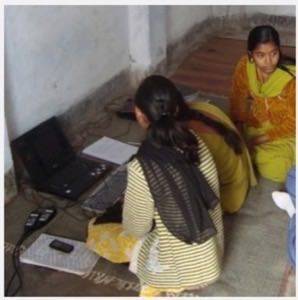Can a government build an effective Facebook for education?

The government of Rajasthan, one of the largest states in India, is building out extensive infrastructure for Information and Communication Technology resources and training, with the collaboration of multiple international agencies including the World Economic Forum.
Next month, the state’s information technology department plans on launching its own education social network: like Facebook, for learning. According to coverage in The Economic Times of India and elsewhere, the site will include all the standard features of social networking (photos, games) but will be focused primarily on educational collaboration and will include topic experts jumping in to answer questions raised by users.
65 percent of today’s grade-school kids may end up doing work that hasn’t been invented yet, says Cathy N. Davidson, co-director of the HASTAC/John D. and Catherine T. MacArthur Foundation Digital Media and Learning Competition.
From Virginia Heffernan’s NYT Editorial this weekend, Education Needs a Digital-Age Upgrade
The Indian tech economy has a long history of
, and so building an official social network to augment other educational efforts sounds like a smart next step to explore.
; let’s see what the government can do. Given the massive adoption of mobile devices in India (
data consumption in the world), it will be interesting to see what kind of mobile component the effort will have.
Can a state-built social network prove compelling to young users? That will probably be easier said than done, but it sounds like there are enough resources behind the project to expect meaningful investment in research and design. The responsible department’s own website doesn’t inspire a lot of confidence, though.
Pluggd.in, a leading blog about technology startups in India, calls both the country’s school management software and its education system in general “archaic.”
Right: From the Education for Education rural computer literacy project, Rukmini Banerji:
“…in the center of the room we could see two laptops. Four young people sat with the computers – two to one computer – with the computer instructor right next to them. She was young – not more than 20 or 22. Her students were also probably the same age. They were learning how to make PowerPoint presentations. I sat quietly behind this group for a long time. The instructor spoke and the students did what she said. It was the best lesson on making PowerPoint presentations that I had ever witnessed. Apart from a quick welcome, neither the students nor the instructor paid any attention to me. They concentrated on the work they were doing. I later learned that the electricity supply in the village is unreliable, so while there is electricity, they don’t waste time and they maximize what they can do on the laptops.”

The urban/rural digital divide in India is severe, but efforts to change that are underway. (The national literacy rate is 63% and only 3% of homes own personal computers.) Yahoo India, for example, announced a nation-wide program in June to educate rural young people about how to use email, search and other parts of the Internet. Another government program was launched in 2009 and used downloadable educational materials to increase literacy among women.
In April, the Indian national government passed a law recognizing the United Nations declaration that education is a universal human right. Only Belgium and Holland have joined India in doing so. Unfortunately, the Indian government is also apt to pass laws permitting censorship of online communications.
There’s a legacy of struggle to capture the benefits of the Internet for educational purposes in India, just as there is everywhere. Ten years ago, Pramod Khera wrote the following in a column in India Today (via educator Stephen Downes):
“E-learning today is facing the same dilemma and acceptance problems that other Net applications are encountering. The Net has grown at an incredible speed in the past decade mainly because of unreasonably high expectations created by Internet and dotcom enthusiasts and protagonists. In their eagerness, they created applications without really analysing and understanding the fundamentals of these applications. They did a good job of populating the Web with enormous content and faulty applications. As a result, customers experienced serious shortcomings, lacunae and inefficiencies in their (applications’) delivery. The story of e-learning is no different.”
Those same words could have been written about online education anywhere, ten years ago, if not today. It will be very interesting to see what the government of Rajasthan launches next month.










